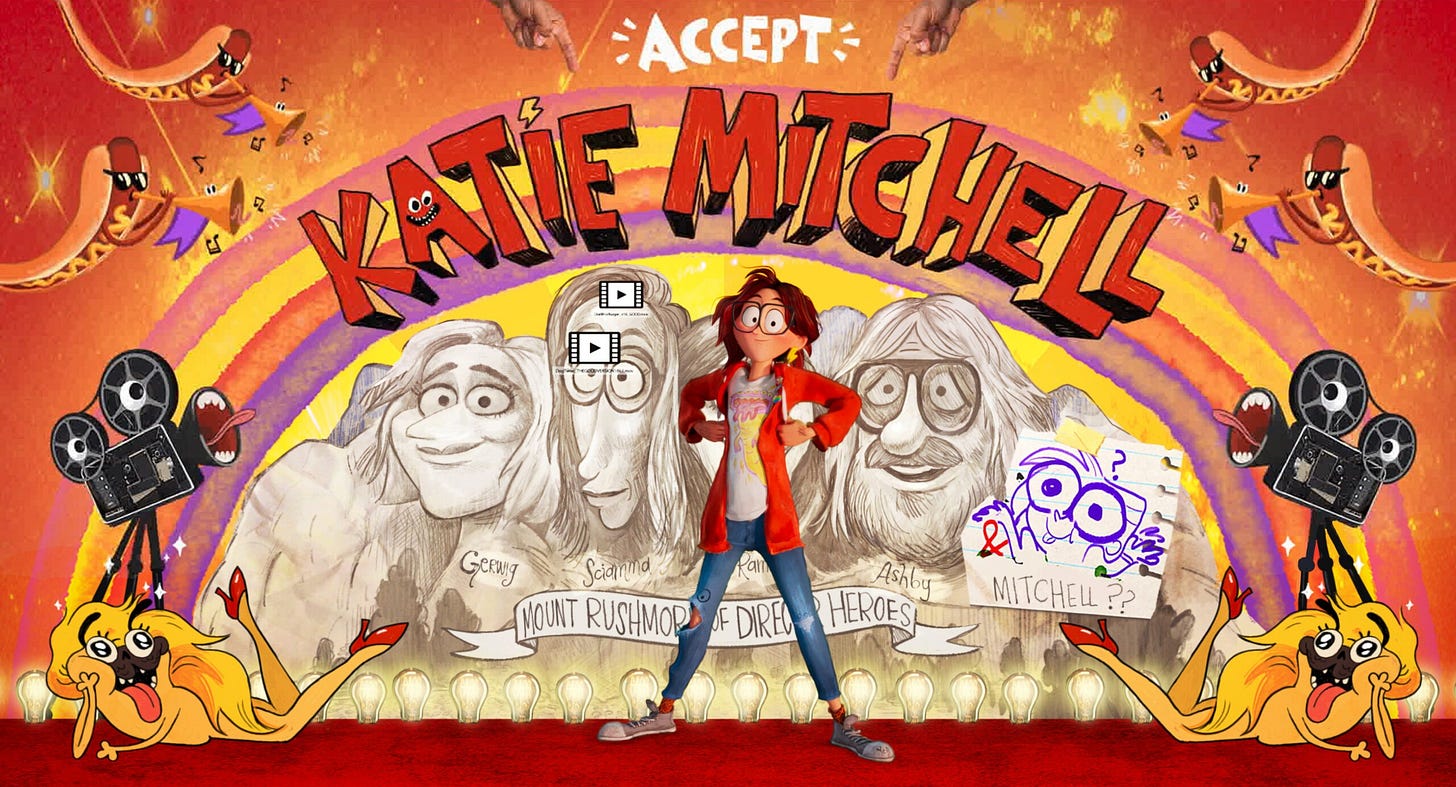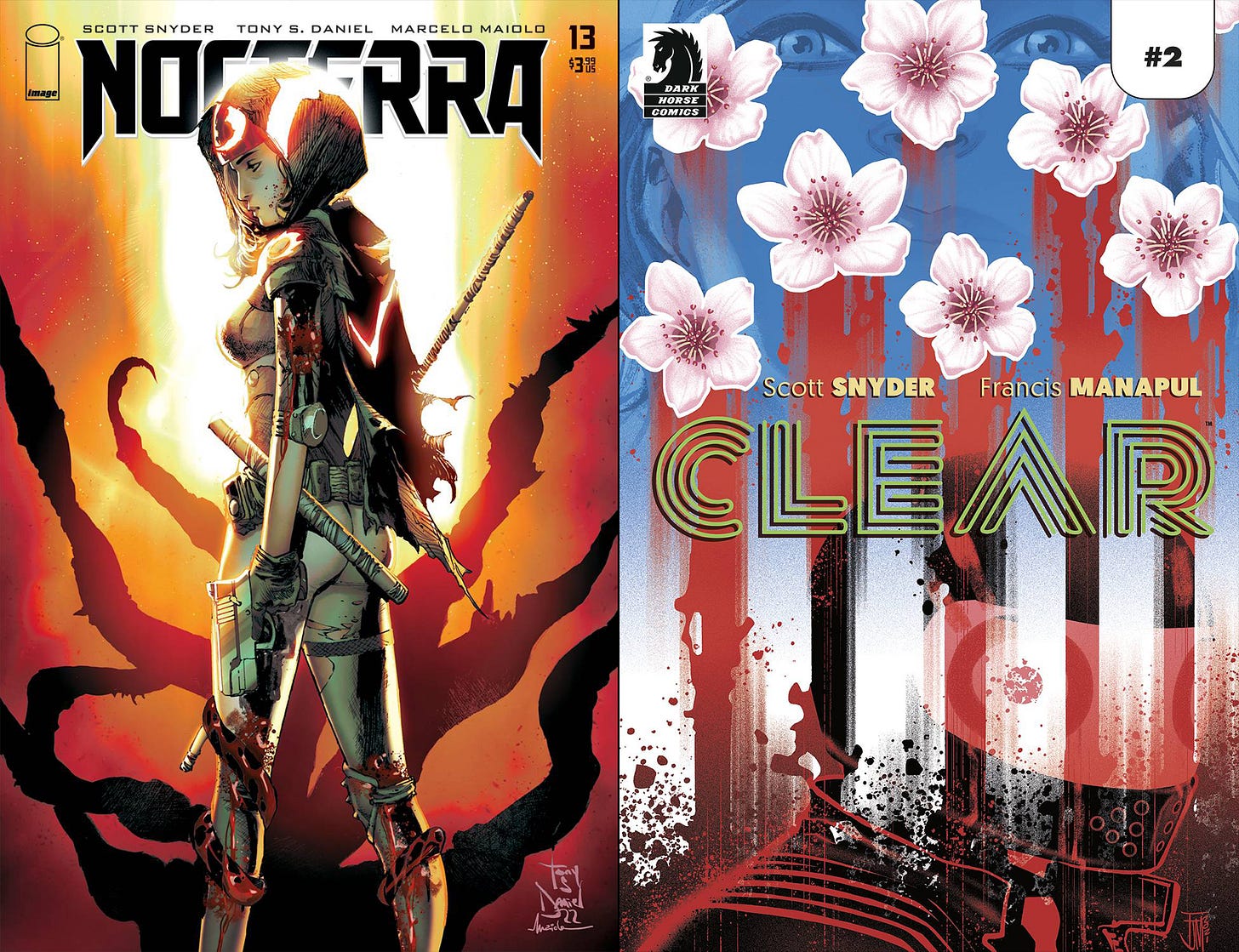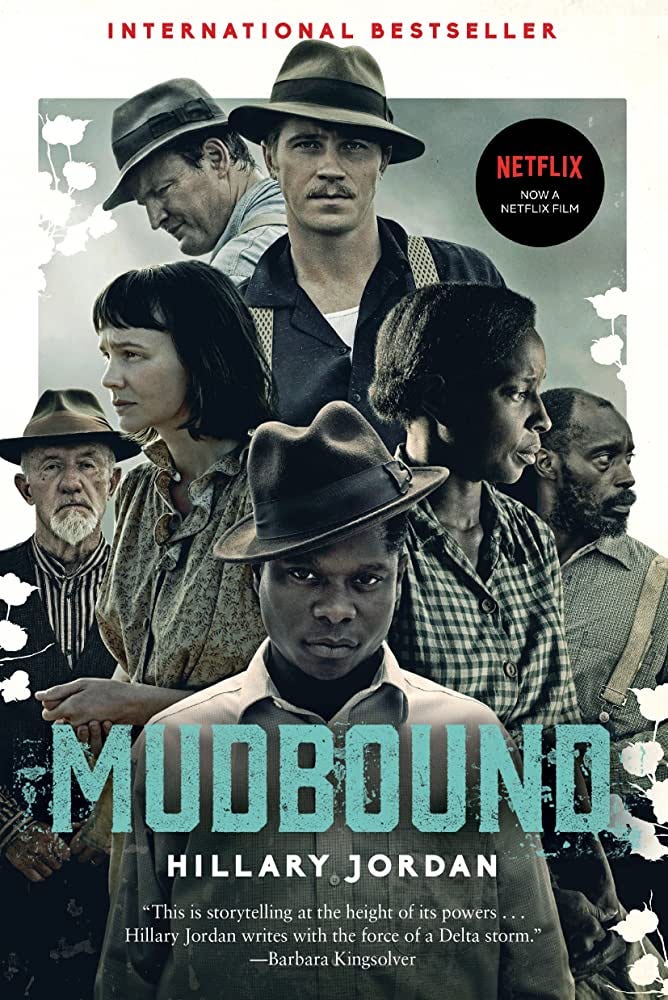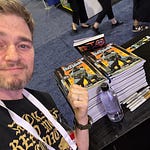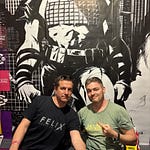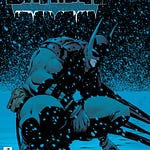Hey guys, it's Scott.
It is Wednesday, April 12th, and I'm sorry I missed last week doing a post. It's been crazy. We had our first week of the Wytches writers room and it was pretty incredible, honestly. We made way more progress than I thought. We're breaking the first season right now, so we're sort of restructuring things to make sure that the eight-episode season really feels strong. And the people in the room have just come up with so many good ideas and have helped reshape things in a way that I think brings out all of the pathos and heart and, really, horror of the whole series in such a strong way that I'm just extremely excited. But it is exhausting, man. Being in a Zoom room for five to six hours a day and being partially in charge of it, running it and staring into that box, always having to be on, always having to respond, always having to consider everything, move things around on the board, think about every suggestion… I mean, there's no downtime. So last night, for example, I was going to do a post and I completely fell asleep watching The Mitchells vs. the Machines, which is an awesome movie on Netflix, by the way.
But a couple things. Housekeeping first, Clear #2 is out this week. Really hoping you'll check it out, we’re super proud of it. And also Nocterra #13. I'm so, so excited about this book and this arc as well. So I hope you guys will go check those books out in print!
Also, on a personal level, things have been crazy because our 16 year-old, Jack, is on a school trip to Ecuador, which blows my mind. The trips that it seems like kids take these days are unbelievable. I mean, I've never been anywhere near Ecuador, I wish I could go. But they used to take us to like, Randall's Island for a field trip, so I'm sort of baffled and amazed and grateful to see these pictures come in from him. Our 11 year-old is in heaven because baseball season has started. We are big Yankees fans in our house. I've followed him down that rabbit hole, he knows like, every statistic from the beginning of the century to now. He’s obsessed with baseball, wonderfully into it. So Yankees are 7 in 4, doing well. We have partial season tickets, so we’ll be going to a game next week. Quinny is bopping along, today's picture day and he's super excited. He got a haircut yesterday at Rockabilly Barbers, our favorite barber out here. We've been going there for 15 years, since before I broke into comics. And they're amazing if you're anywhere in Suffolk County.
But yeah, I was gonna talk today a little bit about a great question it, Ty can post it here:
nyaliss asks, “Outside of the actual writing, what is the most important, and maybe overlooked, skill a writer should develop?”
And I thought what I’d do is go over a valuable thing to hang on to that you can learn as a writer. I’ll be doing a free part of the post and then a paid part. The free part I’m going to talk about this skill, and then the paid post is a technique that helps with it a bit. So for the free part, I think the thing that honestly is the most important element you can learn beyond craft itself as the writer, and I know that sounds hokey but it's the truth, is persistence. It's an endurance race. I mean, I really believe there’s not like, a million great comics under beds that get rejected by publishers because it's a fickle industry. Instead, it’s that people don't finish things or refine them enough. And there are a million reasons for that. Some are absolutely just circumstantial where life gets in the way. Life is always getting in the way for me too. But there's also all kinds of fears and terrors and anxieties and frustrations that arise in doing it that make it not fun sometimes, or often, to push through things.
But I'll give you two examples. Like, for me, I really believe deeply in teaching because I do believe that writing is one of those skills. And I've said it before, it can be learned to a level of competency. Some jobs, you can't. You're not going to make living as a professional baseball player unless you're exceptional. There are some jobs that to do them professionally, you have to be in that incredible top percent. But for writing, to be able to do it to a level where you're working and you're selling things and you're you're making things you're proud of and self publishing, it's like most careers jobs where I feel like they can be learned to a level of proficiency. It doesn't mean that you're going to be amazing at it, it doesn't mean that you're going to be some legend at it or something like Grant Morrison or Neil Gaiman, but it means that you can do it. It’s the same way like, if I wanted to be a lawyer. I think I could probably learn how to be a lawyer. I might not be great at it, but if I loved it and wanted to do it, I could learn to do it. And sometimes you find out you are great at it, or or you can learn to be great at it. So I believe very much, as somebody who doesn't think he started off with a great skill set for writing but wanted to do it, in the ability of people to learn it. So persistence, okay?
I went to grad school for it, I went to Columbia in New York, when I was about 23 or 24. And I had taken a few years off in between college and grad school and I had done odd jobs that I've talked about, like work at Disney World and traveled a bit around the country and that stuff. But I was young, and most of the people I met at grad school were pretty young, we were in our 20s. And everyone came in with things they were working on and a certain level of talent. But there's really varied levels of experience and all of that, and there were a couple of people in the class, I remember, that were older. One, Hillary, was in her late 30s. And another, similarly, James was in his mid-to-late 30s at the time. And Hillary had come up from Texas to New York, and I think she's pretty public about this, but she had been recently divorced and had left a successful career to take a shot at this, at writing. And James was Columbian and was now living in the States.
And I remember, we're all good friends, like I love both of them and that, but our friend groups, they gravitated towards each other as people that were more mature, and we were 10/15 years younger. And me and a friend of mine, Owen King, and a couple other people, we bonded closely. But there was always a sense of “God, they're starting this so late.” And they had other pressures we didn't have. You had financial pressures that we could mitigate by living with roommates and all kinds of stuff that I think at that point in their lives were tougher. And the books they were starting were really challenging. Hillary's was a historical book about a farm in the 1930s and James's was about a town in Colombia where all the men were taken by guerrilla fighters except for one boy, and everybody else were women who took on the jobs of both genders.
And they were ambitious books, they were difficult to write, they were harder than the short story collections and stuff that we were writing, I thought at the time. And there was a sense that this is not going to go well, or this is going to take a very long time for them, because they were skilled and had talent, but again, these books were tough to write. And I think there was a sense on our part that they were older, and the endurance race would get to them whereas we had more fuel in the tank and ability to sacrifice a couple years working on stuff. And it took both of them the better part of ten years. James worked as a waiter and Hillary worked different jobs doing advertising, and everything.
And we've stayed in touch, but again, it took them a decade where they bonded together and traded stuff. Almost ten years. And Hillary Jordan’s book was Mudbound, which is a big Netflix success and was up for a bunch of awards.
And his book, Tales from the Town of Widows, was a pick for one of the groups like Good Morning America and was a best seller as well. And they have thriving careers in writing.
And what I'm trying to say to you is it's not like they started off from some huge deficit with talent. But they started off from a rough point, they came to writing later in life—English was James’ second language and Hillary, again, had a full other life and career before diving in. And there was just a feeling that this was gonna take awhile, and it did take a while. But they stuck with it and they're two of the people that were the most successful out of our group, easily.
And there were people that had tremendous talent. I remember just being like, “God, this person is gonna sell a book in a second.” And some people did. But then some people who also had tremendous talent never finished anything. And it's that ability to get up and write when you don't feel like it. When you have another job, when you have a kid crying, all that stuff, finding the time to do it when you don't feel like it squirreling away that work that will allow you to do it to a level of proficiency and professionalism. Honestly, you can do it as a profession, I'm telling you. It doesn't mean that you might be you might need another job most people do. It doesn't mean that you're gonna live on the earnings of it forever or anything like that. But you can do it to a level where you are making things and you are selling them yourself and all that stuff. Like if that's what you want to do, you can do it. And again, maybe you'll find yourself in a position where you are able to make a living and you are tremendously successful with it. But it's all to me about dedication and that persistence. It's about learning the craft, enjoying learning the craft, and then thinking of it as your real job no matter what else you're doing in life—thinking of it as your real, real job.
Okay, so now I'm gonna move over to the paid part of the post and give you a strategy for keeping your eye on the ball when it comes to first things that you're writing. And even if you're an expert and you're working on stuff, it might be a good rule or thing to remember, a craft technique. Thanks!
Listen to this episode with a 7-day free trial
Subscribe to Our Best Jackett to listen to this post and get 7 days of free access to the full post archives.




